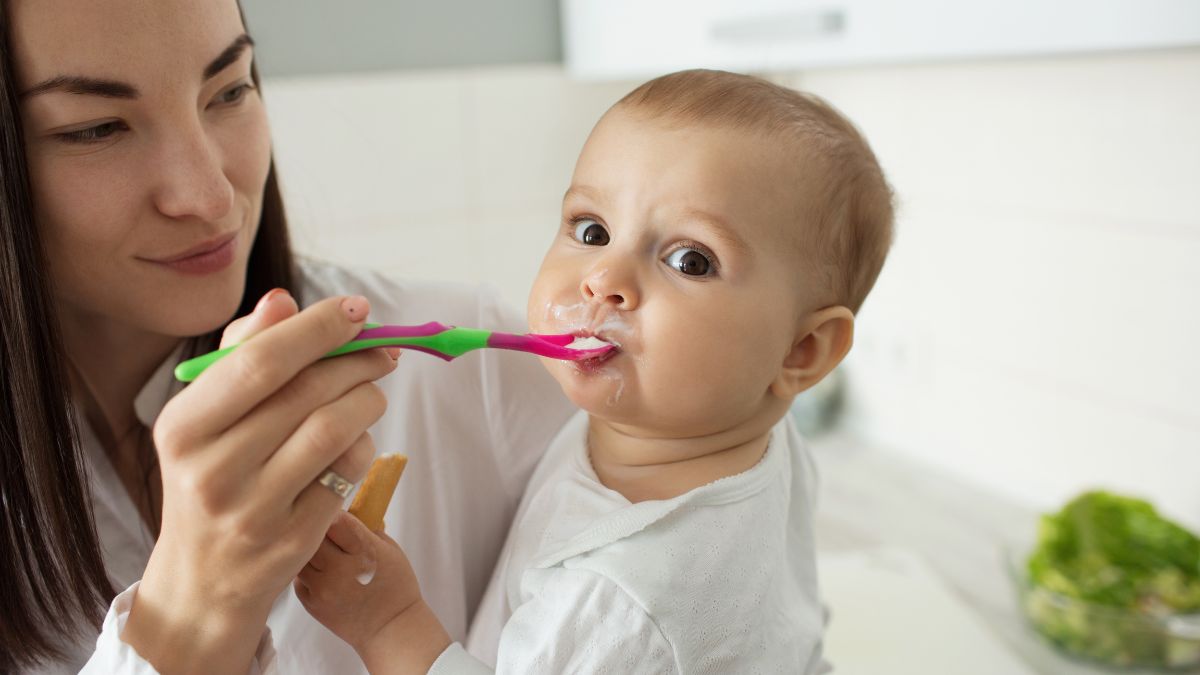Just In
- 2 hrs ago

- 3 hrs ago

- 7 hrs ago

- 10 hrs ago

Don't Miss
- Sports
 DC vs SRH, IPL 2024: Will David Warner play against Sunrisers Hyderabad?
DC vs SRH, IPL 2024: Will David Warner play against Sunrisers Hyderabad? - News
 WATCH Video: India Delivers First Set Of BrahMos Missiles To Philippines Amid China Concerns
WATCH Video: India Delivers First Set Of BrahMos Missiles To Philippines Amid China Concerns - Finance
 Hindustan Zinc's Quarterly Profits Dive 21% Amid Global Metal Price Slump, Shares Plummet; Buy Or Not?
Hindustan Zinc's Quarterly Profits Dive 21% Amid Global Metal Price Slump, Shares Plummet; Buy Or Not? - Movies
 Ranam Aram Thavarel Full Movie Leaked Online In HD For Free Download Hours After It Hit The OTT Platform
Ranam Aram Thavarel Full Movie Leaked Online In HD For Free Download Hours After It Hit The OTT Platform - Automobiles
 Ford Territory SUV Name Trademarked – Likely To Be Positioned Below The Everest SUV
Ford Territory SUV Name Trademarked – Likely To Be Positioned Below The Everest SUV - Technology
 OnePlus Ace 3 Pro Leak Hints at New Design; Expected Launch, Specifications We Know So Far
OnePlus Ace 3 Pro Leak Hints at New Design; Expected Launch, Specifications We Know So Far - Travel
 Journey From Delhi To Ooty: Top Transport Options And Attractions
Journey From Delhi To Ooty: Top Transport Options And Attractions - Education
 IIIT-Bangalore Introduces PG Diploma In Digital Product Design And Management
IIIT-Bangalore Introduces PG Diploma In Digital Product Design And Management
Why Babies Spit Up: What Causes It? How To Reduce Spitting Up?
Babies spit up quite frequently. Some spit up more than others. Some spit up while they are feeding; others spit up while they burp.
Spitting up is a common occurrence in healthy babies. About half of all babies experience gastroesophageal reflux during their first three months, also known as infant reflux or infant acid reflux.

Considering that this is not a major concern, experts state that this spitting up does not result in the loss of nutrients, nor does it indicate an underlying health condition such as indigestion.
Spitting Up In Babies: What Parents Should Know
A baby who spits up frequently is said to be a 'happy spitter', since it indirectly indicates that your child is comfortable, happy with his meals, and is growing without issues. It is, however, best to consult with a child specialist in such cases if your baby does not spit up despite being tapped during a burping session [1].
Because most babies are fed in the parent's arms while lying down, spitting up after a meal makes them feel comfortable on the chest. Aside from preventing babies from choking, spitting up after meals or breastfeeding also increases digestion, which leads to a sound night's sleep for the baby and a healthy growth [2].
Listed below are some of the most important things every parent needs to know about why a baby spits up after feeding:
What Causes Babies To Spit Up?
As for why babies spit up after meals, it is thought that after swallowing milk, the milk goes down past the back of the throat and then passes into the stomach via the oesophagus, a muscular tube.
In order for milk to reach the stomach, the oesophagus and stomach have a muscle ring that opens up. Once the milk or food has been passed through, this ring closes again. If this ring does not tighten up, the milk or food that the baby has consumed can come back through the oesophagus, leading to spitting up [3].

Can you avoid the spitting up?
Sadly, you cannot avoid spitting up in babies. If you do not allow your baby to sit right after the meal, he/she could feel suffocated on the chest, which could be harmful. However, you can always reduce the chances of your baby getting a spit up.
What Can You Do To Reduce Spitting Up In Babies?
Although you cannot prevent this spitting up after a feed, you can reduce the amount. After the baby has been fed, keep him/her upright for about 30 minutes to reduce the amount of food intake. During the day, you may also separate the food into smaller portions [4].
After the child has been fed, it is also important that the child sleeps on his/her back, as sleeping on a tummy or side can result in them spitting up more food consumed and can also result in vomiting.
Here are some tips on how to reduce spitting up in babies [5]:
- Be sure to keep your baby upright
- Avoid overfeeding.
- Burp your baby regularly.
- The baby should be placed on his or her back to sleep.
Can Spitting Up Become A Serious Problem?
When children grow, spitting up of food gradually disappears, but it can become a serious health issue if the baby is spitting up forcefully, is not gaining weight, is spitting up abnormal fluids, and has difficulty breathing [6].
Is there a difference between spitting up and vomiting in babies?
The act of spitting up occurs when a baby's stomach contents are forced out of his or her mouth, possibly through a burp. Vomiting occurs when the flow is forceful, shooting out inches rather than dribbling.

On A Final Note...
It is important to note that certain signs and symptoms may indicate that there is more to this than just plain old spitting up.
You should speak with your baby's doctor if your baby doesn't gain weight, spews up forcefully, refuses feeds repeatedly, has blood in his or her stool, is having difficulty breathing or has other symptoms of illness. If your baby starts spitting up at 6 months or older, contact your doctor immediately.
-
 pregnancy parentingWhat Are The 4 Must Have Vitamins For Kids With Diabetes?
pregnancy parentingWhat Are The 4 Must Have Vitamins For Kids With Diabetes? -
 pregnancy parentingStates On High Alert As China Grapples With Respiratory Infections: Symptoms, Do’s And Don’ts
pregnancy parentingStates On High Alert As China Grapples With Respiratory Infections: Symptoms, Do’s And Don’ts -
 healthBust Bloating: 5 Exercises Every Teenage Girl Needs For A Happy Tummy
healthBust Bloating: 5 Exercises Every Teenage Girl Needs For A Happy Tummy -
 pregnancy parentingIncreasing Reports Of STIs In Children: Tips for Parents on Educating Kids about STI Prevention
pregnancy parentingIncreasing Reports Of STIs In Children: Tips for Parents on Educating Kids about STI Prevention -
 pregnancy parentingAre You The Second Favourite Parent To Your Kid? Signs To Watch Out For
pregnancy parentingAre You The Second Favourite Parent To Your Kid? Signs To Watch Out For -
 pregnancy parentingWorld Toilet Day: 5 Ways To Teach Healthy Bathroom Habits In Kids
pregnancy parentingWorld Toilet Day: 5 Ways To Teach Healthy Bathroom Habits In Kids -
 healthAre You Really “Super Smart,” But Just Don’t Know It Yet? 4 Signs You Have A High IQ
healthAre You Really “Super Smart,” But Just Don’t Know It Yet? 4 Signs You Have A High IQ -
 pregnancy parentingTwo Wombs, Four Hearts: US Mom's Extraordinary Double Uterus Pregnancy
pregnancy parentingTwo Wombs, Four Hearts: US Mom's Extraordinary Double Uterus Pregnancy -
 pregnancy parentingChildren's Day 2023: A Glimpse Into Education Abroad: Perspectives From Indian Parents In Canada, Australia..
pregnancy parentingChildren's Day 2023: A Glimpse Into Education Abroad: Perspectives From Indian Parents In Canada, Australia.. -
 pregnancy parentingWhat Are The Mandatory Vaccines For Children In India?
pregnancy parentingWhat Are The Mandatory Vaccines For Children In India? -
 pregnancy parentingWorld Pneumonia Day: Risk Factors Of Pneumonia In Children
pregnancy parentingWorld Pneumonia Day: Risk Factors Of Pneumonia In Children -
 pregnancy parentingChildren’s Day: 5 Books You Can Introduce To Kids Above 10 Yrs
pregnancy parentingChildren’s Day: 5 Books You Can Introduce To Kids Above 10 Yrs


 Click it and Unblock the Notifications
Click it and Unblock the Notifications



